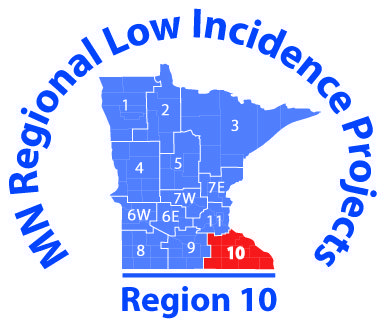Project Overview
THE NEED
“Today’s workforce will not only need postsecondary training and education but will also need to be lifelong learners who can gain new knowledge throughout their careers. To establish an education-to-workforce pipeline, state leaders will need to align the education system with labor market needs to ensure a seamless system of academic, technical, and employability skills preparedness.”
2019, AIR, Developing a College- and Career-Ready Workforce An Analysis of ESSA, Perkins V, IDEA, and WIOA
The intersection of federal and state legislation with local school districts in regard to college and career readiness is significant. The March 2019 AIR publication, Developing a College- and Career-Ready Workforce An Analysis of ESSA, Perkins V, IDEA, and WIOA, identifies the need to align services across education to increase our preparation of students for the future workforce.
“Together, ESSA, Perkins V, IDEA, and WIOA can facilitate an education-to-workforce pipeline that provides all individuals with the academic, technical, and employability skills they need to be successful in the workforce.”
2019, AIR, Developing a College- and Career-Ready Workforce An Analysis of ESSA, Perkins V, IDEA, and WIOA)”
Executive Order 13-01 appointed and charged an Olmstead Sub-Cabinet to swiftly implement standards set forth in the Olmstead decision and the mandates of Title II of the Americans with Disabilities Act (ADA) through coordinated efforts of designated State agencies. These efforts must ensure that all Minnesotans have the opportunity, both now and in the future, to live close to their families and friends, to live more independently, to engage in productive employment, and to participate in community life.
Governor Dayton Executive Order: Employment of Individuals with Disabilities (2014)
“…data released this month by the Minnesota Management and Budget (MMB) office shows that approximately 20% of individuals with disabilities who were approved to participate in the program were actually hired and slightly less than 12% are still employed…”
Minnesota state jobs program for people with disabilities fails to live up to promise (2020)
The efforts outlined in this pilot project aim to equip local school districts with targeted support for creating, implementing, and refining Experiential Learning opportunities. In particular, this effort is meant to create effective and efficient programs that align local efforts with federal and state legislation and, ultimately, supports student development.
THE HOW
The pilot will use evidence-based tools and resources to evaluate, educate, and apply in teacher practices for experiential learning programs in high schools, and alternative settings.
To address this need, we will be initiating a pilot program to help whole teams walk through the process of creating/redeveloping experiential learning programs utilizing the quality indicators for implementation.
Through an application process and a needs assessment, teams will work together to:
- identify gaps
- develop action plans
- utilize and/or design data collection tools
- identify/create local/regional professional development opportunities
- implement best practices
THE OUTCOMES
Expected Outcomes
To enhance programming for ALL Ed experiential learning programs evidenced by:
- Program is Student Focused
- Program Engages Families in the process
- Program Structures are in place
- Program includes Interagency Collaborations
- Program provides Student Development
- Align Policy to best practices
- Increase collaborative partners
- Increase the equity of students in special populations (i.e., English learners, Title 1, special education, etc.)
Authority to Affect Change
As part of this pilot project, your district special education director and building administrator provide the authority for the team to implement changes and will provide an appropriate allocation of resources to implement change within reasonable parameters identified in local team action plans.
Team Members
As part of the project, teams and districts will develop a team of support staff including but not limited to:
- *Special Education Director
- *Special Education Administrator (AD, Coord, etc)
- *Building Administrator
- Classroom Teacher
- *Career and Technical Education/WBL Coordinator (general education)
- *Special Education WBL Coordinator
- Educational Assistants/Paraprofessionals
- *WDI Staff
- *County
- *Vocational Rehabilitation Counselor
*indicates required members
To learn more or explore this opportunity in your program, please reach out to Christian Wernau.
Participating Teams
- Cannon Valley Special Education Cooperative
